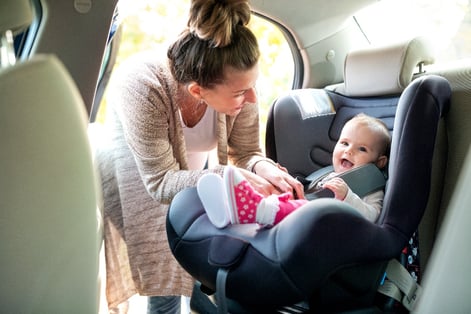 A new baby's arrival into the family is a happy and exciting event, but it also entails a great deal of responsibility for their safety and well-being. It's critical to take proactive steps to create a safe environment for your baby because infant safety is very important.
A new baby's arrival into the family is a happy and exciting event, but it also entails a great deal of responsibility for their safety and well-being. It's critical to take proactive steps to create a safe environment for your baby because infant safety is very important.
Creating a Safe Sleep Environment
Infants should sleep on their backs on a hard mattress in a crib or bassinet that is devoid of toys, soft bedding, pillows, and other loose items, according to the American Academy of Pediatrics (AAP). To lower the risk of suffocation and SIDS (Sudden Infant Death Syndrome), avoid co-sleeping with your baby and make sure their sleeping area is clear of risks.
Proper Installation of Car Seats
Invest in a high-quality car seat that meets current safety standards and ensure it is installed correctly in your vehicle. Follow the manufacturer's instructions for installation and use, and never place a rear-facing car seat in the front seat of a vehicle equipped with airbags. Regularly check and adjust the straps to ensure a secure fit as your baby grows.
Preventing Falls and Injuries
Securing furniture, such as dressers, bookcases, and TVs, to the wall to avoid tipping is one way to take preventive measures against falls and injuries. To prevent accidents, use safety gates to close off stairways and other potentially dangerous spaces. Covering electrical sockets is crucial for infant safety as it helps prevent accidental electrocution or injury caused by curious exploration and insertion of objects into the sockets. Also, never leave your infant alone on raised surfaces like beds or changing tables.
Safe Handling and Feeding Practices
Use caution when holding and feeding your infant to prevent burns, choking, and other injuries. To avoid scorching your baby, check the temperature of food, breast milk, or formula on your wrist before feeding them. You should also never leave them unattended while they are eating. Once they to eat table food, to lessen the chance of choking, chop food into tiny, bite-sized pieces and watch over mealtimes at all times.
Monitoring for Signs of Illness or Injury
Keep an eye out for symptoms of illness or injury in your baby, such as fever, breathing difficulties, extreme fussiness, or behavioral changes. If you have any worries about your baby's health or safety, follow your instincts and get medical help.
Infant safety is a top priority for parents, and taking proactive steps to create a safe environment for your baby is essential. By following guidelines for safe sleep, proper car seat installation, injury prevention, safe handling and feeding practices, and vigilant monitoring, parents can protect their little ones from harm and provide a nurturing and secure environment for them to thrive. The pediatricians, nurses, and staff at Lane Pediatrics are here for all of your child’s healthcare needs.




